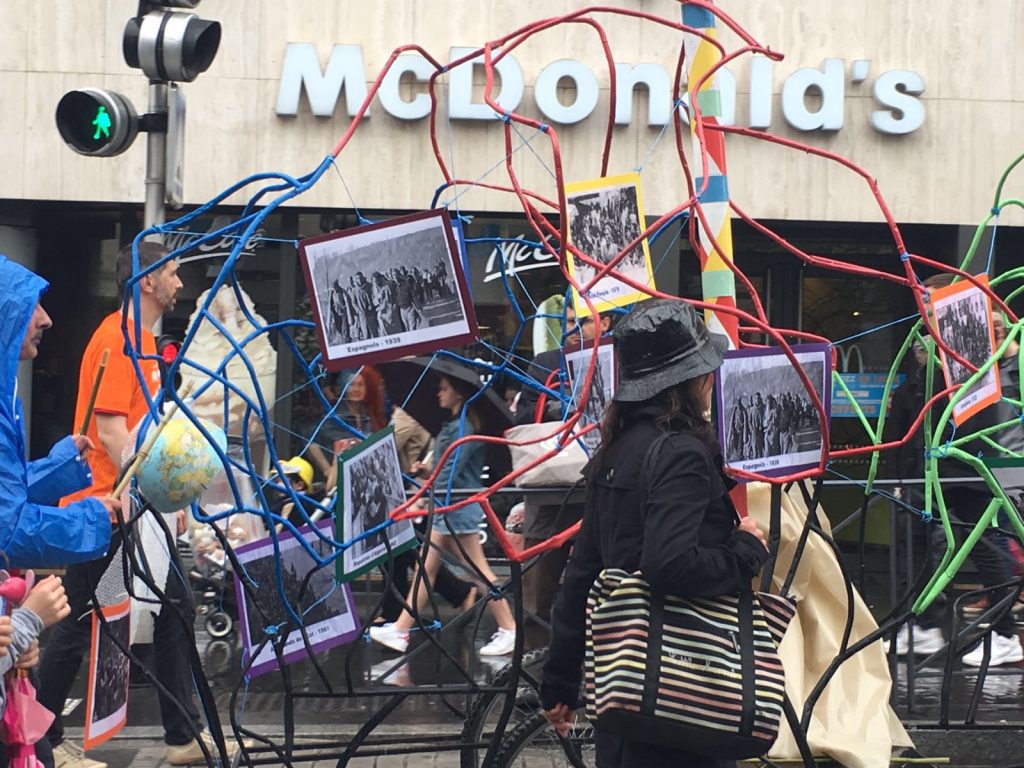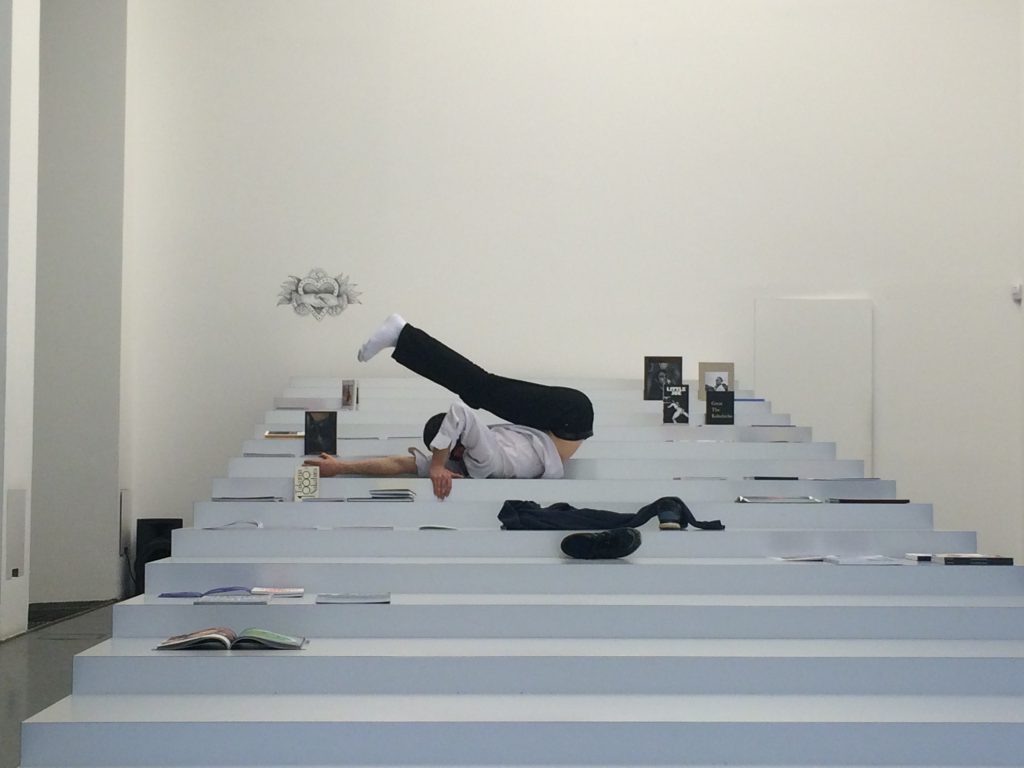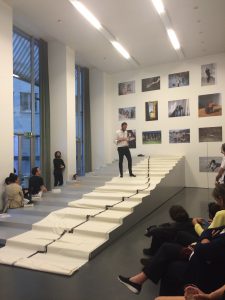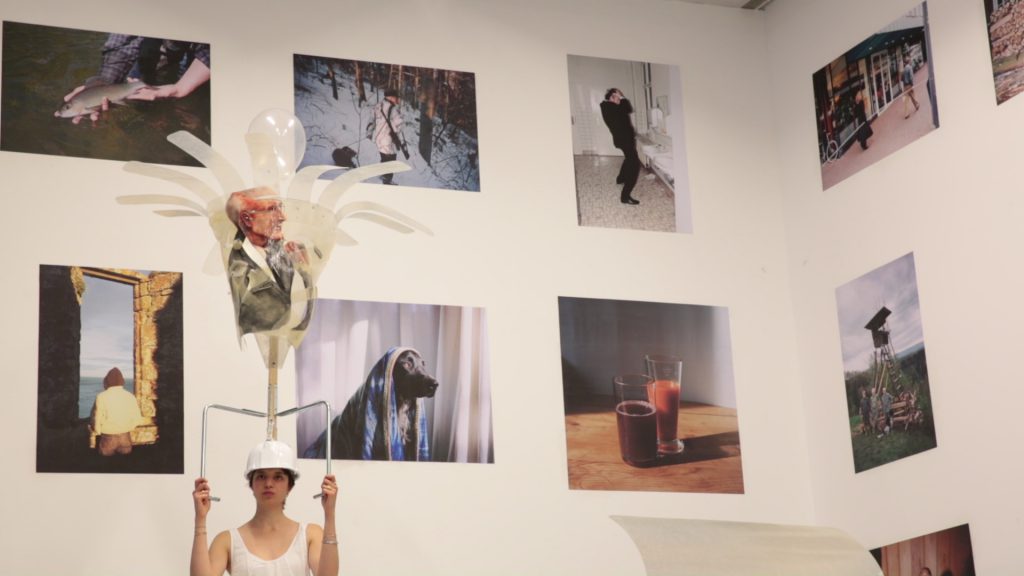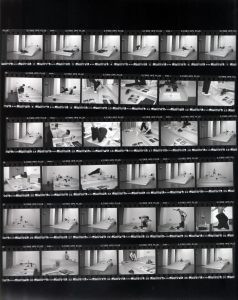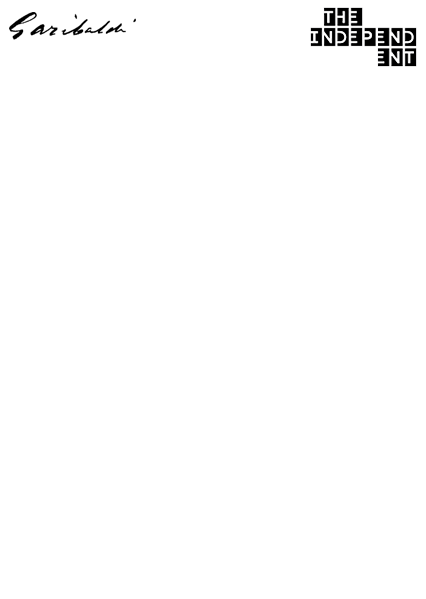
Anita Garibaldi
Caterina Riva
Throughout the three years that I lived and worked in New Zealand, I thought of Europe with nostalgia, romanticising it as if it were a bastion of culture and of history. However, since returning to my continent of origin I’ve started to realise that the politics of these shores are governed by circumstances that are much more basic and feelings that are much cruder. Coming back has been truly complicated, trying to find work in Italy as a thirty plus woman soon proved to be a minefield. I always start from the assumption that I have the same abilities as a man and, therefore, don’t worry about staying on the sideline: I’ve read, studied and travelled too much to accept any sexist prejudices. When I tried to say something in Italy, my non-conformity was watered down with phrases such as “you can tell that you’ve been abroad”.
In fact, from 2006 to 2011 I lived in London. Since Brexit, I have reflected on how important my time there was, how different I would be if that experience had been denied to me. I grew up in the far north of Italy, so I know something about parochialism and being closed off, of places that offer fertile ground for the Lega Nord; close to Ticino, right on the edge of Switzerland, where people cross country lines to go to work and where the cost of petrol is less depending on which side of the border you are on. The barracks of the Guardia di Finanza (a police force for fiscal faults) in the town where my parents live has been empty for years and was once the departure point for various tales of romance between local girls and financiers dislocated there. It is now home to dozens of migrants coming from Africa, all men but of varying ages and religions, and speaking different languages.
In the garden of the house where my mother grew up, now partially submerged and overgrown with bushes, there is a bust of Garibaldi. I think that when they were little girls, my mother and her sisters entertained themselves by kissing it. I remember the bust as being quite impressive but, looking at it now close up, I can tell that its proportions are actually quite small and that its impressiveness is dependent on the viewer’s being small.
There are frontiers and then there are frontiers. For several months between 2015 and 2016, my mother had to undergo chemotherapy. Seeing the symptoms of cancer close up was extremely difficult. Seeing someone close to you with cancer it is a bit like taking on some of the diseased cells yourself, with none of the symptoms but a large share in the psychological pain. To demonstrate their compassion and solidarity, people would list symptoms and remedies experienced by their own family, friends or by themselves.
For me, independence, if we take that to mean working as a freelancer, is not so much a choice as a plan B that’s necessary in order to earn enough to live. I would love for my work as a curator in Italy to be respected and protected, for it to be assured continuity, and for there to be taxation rules that take into account different incomes, as happens in France with les intermittents du spectacle. Perhaps ‘independent’ has become a label that marketing and communications departments use to conceal small budgets and more informal relationships with invited subjects. In 2016, I worked with Dallas to organise RIVIERA, a working library with a packed programme of events spanning art, publishing and design. For four months, the project occupied the space of the Istituto Svizzero in Milan. The challenge was to offer a varied public a wide range of content and to encourage return visits. From the point of view of an organiser, the project required coordination skills, as well as respecting a budget that was extremely tight in comparison to the project’s ambitions. RIVIERA allowed me though to work with artists in an atypical way, and to jointly conceive of single night events that involved direct confrontation with the public and their reactions.
At the end of August 2016, I went to Marseille. I had been invited there several months before by the artist Benjamin Valenza, and the aim of the visit was to think about a programme of videos that could be included in the project LABOR ZERO LABOR, a live streaming platform with its own dedicated online channel. In LZL, works conceptualised for and recorded on videocamera are immediately put into circulation; the stream is propagated from an ex-industrial cultural space (La Friche), which is used as a production studio. Independents take the most risks and experiment with the format; Benjamin Valenza surely pulls the strings in this situation, he tends to always work with a group of trusted collaborators, a family of sorts composed primarily of his current and former students, who help him with every aspect of production, from placing technical equipment and lights, to shooting and control the online streaming. The intention is to maintain a fluidity in which each participant is simultaneously worker, actor, producer, creator and labourer. The project is mobile and can be hosted by different institutional reality with each iteration of the live TV project.
There was a wonderful energy at La Friche, perhaps partly thanks to the adrenaline of the live stream, which made the impossible possible and added humanity through its attitude, which was more amateur than professional. The medium allows for dissemination through geographical barriers, but which is admittedly subject to differences in time zone. Languages, artists and styles mix with one another and also reflect upon how the material comes to us – mediated or unmediated – on our laptops.
Sometimes you get the hateful ‘loading’ spinning wheel, other times the content is blocked due to copyright infringement; in essence, the same problems you encounter when wandering and searching online, a realm that is global but also limited, are reproduced. LABOR ZERO LABOR invites participants to trust in and surrender to this suspended entity, something of a pirate land. The project promises to experiment with more slippery timeframes than those applying to visitors at a conventional exhibition, and leaves behind the well-known parameters of the white cube in favour of the numerous possibilities offered by the green screen. Fear and possibility of failure are real threats, but there is also great motivation for going beyond safe ground and well-worn territories in search of new spaces for sharing: transactional, transgenerational, transdisciplinary, trans.


